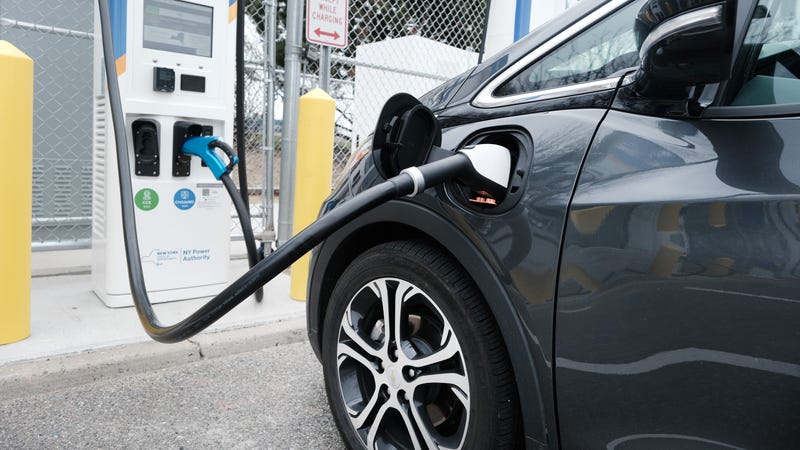
The Biden administration announced on Feb. 10 that the United States will make $5 billion available under the new National Electric Vehicle Infrastructure (NEVI) Formula Program to build an electric vehicle charging network across the country.
The program is part of President Joe Biden’s Bipartisan Infrastructure Law, and will distribute the $5 billion to states over five years. The goal is to make electric vehicle charging accessible to all Americans.
The money will allow states to create a network of electric vehicle charging stations along the designated Alternative Fuel Corridors, including the Interstate Highway System. States will have to submit an EV Infrastructure Deployment Plan to gain access to the funds.
There will be $615 million made available to states in the 2022 Fiscal Year under the NEVI Formula Program.
The Biden administration added that later this year they'll announce a "second, competitive grant program" that's aimed at increasing electric vehicle charging stations in rural and and underserved communities.
"A century ago, America ushered in the modern automotive era; now America must lead the electric vehicle revolution," U.S. Transportation Secretary Pete Buttigieg said in the statement. "The President’s Bipartisan Infrastructure Law will help us win the EV race by working with states, labor, and the private sector to deploy a historic nationwide charging network that will make EV charging accessible for more Americans."
Electric vehicles accounted for just 3% of all cars sold, according to JD Power, with about 489,000 sold in total. That low number likely has to do with the average price of an electric car being $56,437, per Kelley Blue Book.
"We got to get that sticker price down," Buttigieg said. “That’s why we got to accelerate these things being produced on a widespread basis. And it’s why we want more tax incentives to help buy down that upfront cost."
According to the Department of Energy, there are 53,595 publicly accessible electric vehicle charging stations. The Biden administration's goal is there to be 500,000 electric vehicle chargers available to the public.
U.S. Secretary of Energy Jennifer M. Granholm added that to modernize the national highway system, electric vehicle charging stations need to be more accesible.
"We are modernizing America’s national highway system for drivers in cities large and small, towns and rural communities, to take advantage of the benefits of driving electric," Granholm said. "The Bipartisan Infrastructure Law is helping states to make electric vehicle charging more accessible by building the necessary infrastructure for drivers across America to save money and go the distance, from coast-to-coast."


